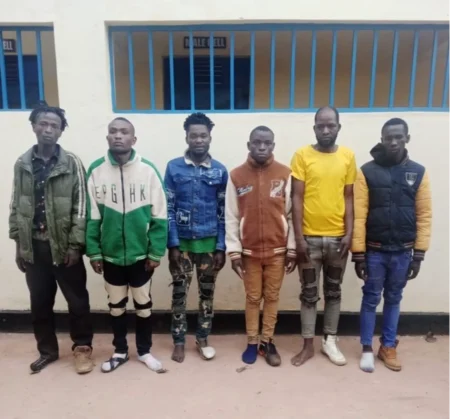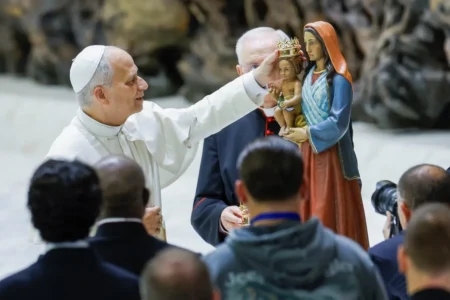NAIROBI, Kenya — Controversial Kenyan televangelist Pastor James Ng’ang’a, the founder of the Neno Evangelism Centre, is facing nationwide condemnation following the circulation of a viral video in which he appears to confess to participating in a gang rape alongside seven other men during his youth, prior to establishing his ministry.
The video clip, reportedly filmed during a church service, has been disseminated widely across social media, drawing fierce criticism from Kenyans who described the pastor’s recounting of the event as disturbingly casual.
The reaction of the congregation further alarmed many viewers, with some audible laughter and clapping accompanying Ng’ang’a’s account.
Public outrage has been immediate and intense, with numerous Kenyans online demanding an urgent legal investigation.
Critics describe the alleged confession as a shocking example of moral decay and desensitization within certain religious environments.
The incident has also reignited national debate concerning the limits of forgiveness and redemption when applied to severe crimes of sexual violence.
Pastor Ng’ang’a has historically been candid about his criminal background, which includes serving nearly two decades in prison for robbery, claiming to have subsequently reformed his life.
However, this new revelation has drastically shifted the public conversation, placing intense focus on accountability over simple repentance.
Also Read: Court hunts suspect in false sodomy allegations against Pastor Robert Kayanja
Critics argue that the nature of his remarks appears to glorify past wrongdoing rather than demonstrate genuine contrition.
As the nation awaits official statements from law enforcement or representatives of the Neno Evangelism Centre, online activists and women’s rights advocates are pressuring authorities to act.
They assert that such an admission, if authentic, necessitates immediate and thorough investigation.
For many Kenyans, the widespread uproar is rooted in broader frustration over what they perceive as unchecked power in the pulpit, where influential religious leaders often operate with little regulatory scrutiny.
The ongoing spread of the video has reopened painful national discussions about the intersection of faith, forgiveness, and justice, raising the fundamental question of whether spiritual repentance alone is sufficient to absolve crimes of sexual violence.







